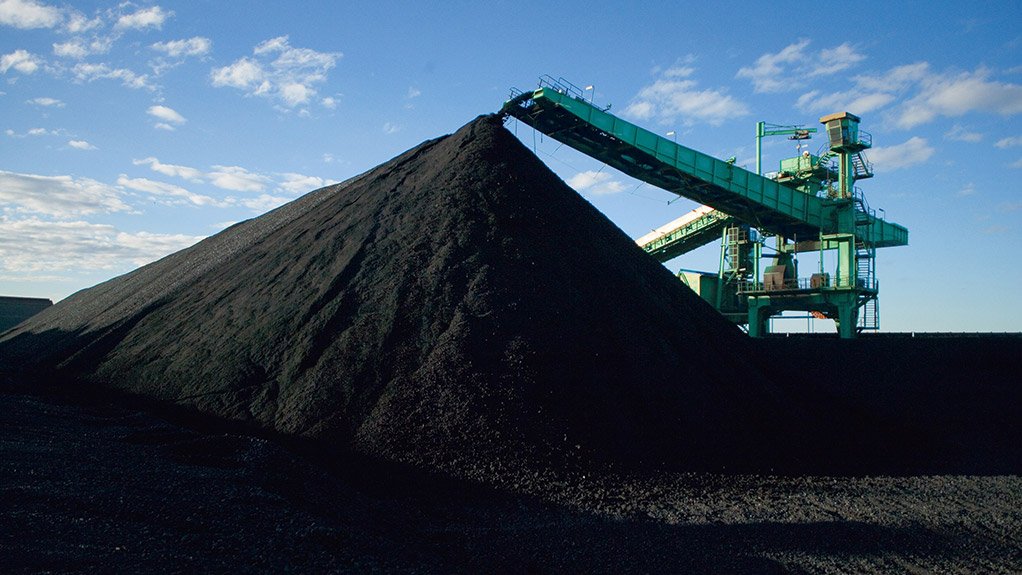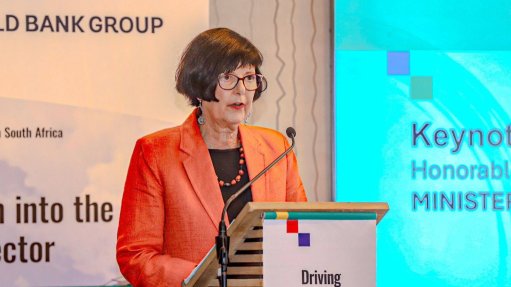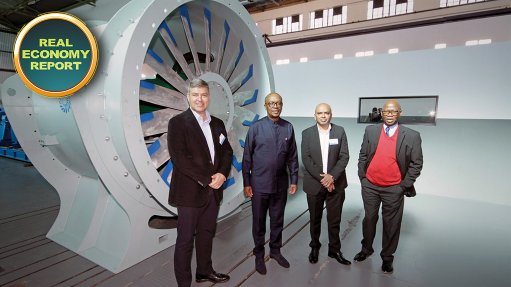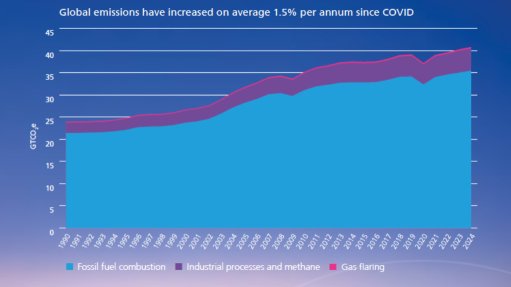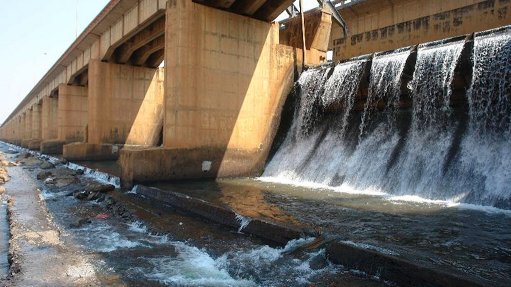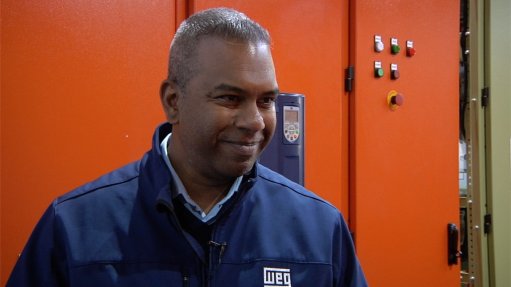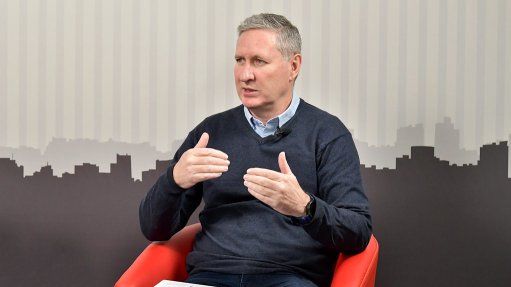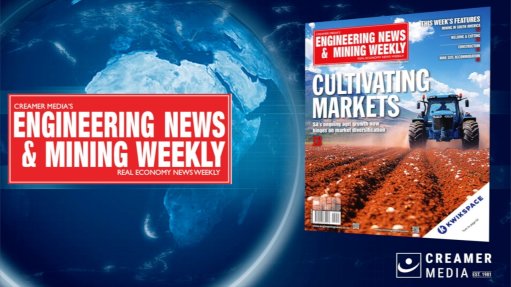Speakers stress importance of coal as an energy source, warn of unfair pressure on developing countries
With coal consumption having increased by 11% since the signing of the Paris Agreement in 2015 and the commodity being a mainstay for many countries’ energy mixes, including Australia and India, experts gathered at the Coal & Energy Transition Day on July 23 are confident that there is still an immediate, intermediate and long-term future for coal.
Minerals Council South Africa environment, health and legacies senior executive Nikisi Lesufi said the development of South Africa was at stake, hence the importance of discussing coal’s role as a fundamental requirement for economic growth.
“Without the immediate potential of coal, there will be no discernible economic development. In the longer term, the fundamentals of coal will remain the same – it [overcomes] the intermittency of other energy sources and ensures baseload security,” he stated.
However, Lesufi averred that coal mining companies still had an obligation to implement lower-carbon initiatives. The Minerals Council was collating information on coal miners’ decarbonisation initiatives to determine whether there had been traction in this regard.
Lesufi said more strategies for mine closure were emerging, particularly to ensure resilience in regions such as Mpumalanga despite the progressive closure of mines and coal-fired power plants.
“The industry no longer has to cover up degraded land, rather, it is looking at opportunities for economic succession and new activities that use the assets and liabilities left behind by mining.”
Jindal Africa CEO Parshant Goyal’s stance was that South Africa had abundant reserves of coal totalling more than 30-billion tonnes, which was not only able to satisfy electricity baseload requirements, but also to generate export revenue for the country.
He said there were technologies available to reduce emissions, including noxious gases generated by coal-fired power plants.
Additionally, Goyal highlighted that the washing of coal also reduced the carbon content, while discard material was being reused to produce other products.
As long as there is a 30- or 40-year transition period, coal would still be needed, Goyal stated.
Department of Mineral and Petroleum Resources petroleum regulation deputy director-general Tseliso Maqubela said the South African government realised as far back as 1998 that a sustainable energy mix in the country required diversification.
“Coal is a fundamental block of that energy mix and will remain like that for a while.
“Currently we have power plants that will run well into the 2050s. We also have an economy in Mpumalanga and Limpopo that is reliant on the coal industry for jobs and revenue.”
Having said that, Maqubela also acknowledged the detrimental impacts of climate change, which necessitated the introduction of more renewable energy and gas – with the latter meant to sustain the cleaner forms of energy such as wind and solar going forward.
He mentioned that 12% of South Africa’s fuel was derived from Sasol’s coal-to-liquids plants, which also generated revenue and jobs for the country.
In addition to more renewable energy in the energy mix, additional nuclear energy capacity was also being considered for future development.
Apart from global pressure having changed how the coal industry operated, the South African industry had changed from having a few major corporates, such as Anglo American, BHP, Sasol and Exxaro Resources, running the industry, to having more junior mining companies operating in the market, said Overlooked Group CEO Ontiretse Mathews Senosi.
“While this is good for competition, there are however not big balance sheets to support more growth at the moment. We must start making sure coal is a part of the energy mix in future to support baseload amid a transition, and to be sustainable in the future for these companies.”
Senosi added that junior mining companies had greater trouble in accessing finance and equity, and needed to find more innovative ways to fund coal projects.
This while the world has proven the value of coal amid commodity volatility, geopolitical tension, renewable-energy intermittency and growing populations.
Senosi said coal had always been pivotal to growth in South Africa and, while cleaner energies would come to the fore, coal as an energy mineral could also be cleaner. “We can support more solutions toward cleaner coal to continue supplying our baseload needs and that of other countries.”
Moreover, he said there had already been an energy transition to lower emissions in that Eskom had started procuring higher-quality coal for better efficiencies. He added that mining companies were increasingly developing renewable energy on site to power mines, to ensure a lower overall carbon footprint.
UNFAIR EXPECTATIONS
Lesufi raised his concern about foreign policies being implemented internationally, citing the EU’s Carbon Border Adjustment Mechanism as an example. “It requires for the determination of carbon intensity and on that basis a tax must be paid. In mining’s case, that cost cannot be passed down to consumers, making it unsustainable for the mining operation.”
He pointed out that international policies such as this unfairly discriminated against emerging countries that did not even contribute that much to global emissions and climate change in the first place, but were now forced to decarbonise at an equal level to developed countries.
Maqubela agreed with Lesufi, stating that South Africa ought to be treated fairly and equitably as a country. He explained that the contribution of South Africa and the rest of Africa to global emissions was negligible, yet the country would increasingly be penalised.
This while the world is dependent on the Global South’s minerals for the global green energy transition.
Lesufi said the majority of critical minerals lay in the southern hemisphere, while most of the capital for financing ay in the northern hemisphere countries.
“There will have to be a discussion on terms and conditions of access to the market and access to capital for mutual growth,” he argued.
Comments
Press Office
Announcements
What's On
Subscribe to improve your user experience...
Option 1 (equivalent of R125 a month):
Receive a weekly copy of Creamer Media's Engineering News & Mining Weekly magazine
(print copy for those in South Africa and e-magazine for those outside of South Africa)
Receive daily email newsletters
Access to full search results
Access archive of magazine back copies
Access to Projects in Progress
Access to ONE Research Report of your choice in PDF format
Option 2 (equivalent of R375 a month):
All benefits from Option 1
PLUS
Access to Creamer Media's Research Channel Africa for ALL Research Reports, in PDF format, on various industrial and mining sectors
including Electricity; Water; Energy Transition; Hydrogen; Roads, Rail and Ports; Coal; Gold; Platinum; Battery Metals; etc.
Already a subscriber?
Forgotten your password?
Receive weekly copy of Creamer Media's Engineering News & Mining Weekly magazine (print copy for those in South Africa and e-magazine for those outside of South Africa)
➕
Recieve daily email newsletters
➕
Access to full search results
➕
Access archive of magazine back copies
➕
Access to Projects in Progress
➕
Access to ONE Research Report of your choice in PDF format
RESEARCH CHANNEL AFRICA
R4500 (equivalent of R375 a month)
SUBSCRIBEAll benefits from Option 1
➕
Access to Creamer Media's Research Channel Africa for ALL Research Reports on various industrial and mining sectors, in PDF format, including on:
Electricity
➕
Water
➕
Energy Transition
➕
Hydrogen
➕
Roads, Rail and Ports
➕
Coal
➕
Gold
➕
Platinum
➕
Battery Metals
➕
etc.
Receive all benefits from Option 1 or Option 2 delivered to numerous people at your company
➕
Multiple User names and Passwords for simultaneous log-ins
➕
Intranet integration access to all in your organisation



